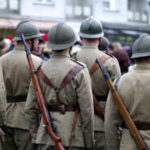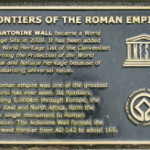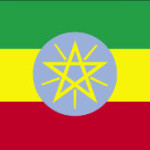When Coffee Was Once Rationed
Do you enjoy that first cup of coffee in the morning? Do you look forward to the rich aroma and taste of your favorite coffee during your mid-morning break? During one period in history, people did not have the luxury of enjoying coffee whenever they liked. In fact, coffee rationing became the norm for people across the country.
Learn more about when this American favorite was once rationed, why the rationing occurred and when the rationing of coffee ended.
Rationing Coffee During World War II
The rationing of several products occurred during World War II. The need for supplies critical to the efforts of the U.S. Military during WWII was the reasoning behind rationing of some supplies and products, such as rubber, gasoline, and even clothing.
On November 29, 1942, the U.S. Government added coffee to the list of items rationed during WWII. The National WWII Museum in New Orleans explains that this meant that Americans could only purchase one pound of coffee per family every five weeks.
How Did Government Officials Enforce This Rationing?
The U.S. Office of Price Administration developed the rationing system during WWII, with over 8,000 ration boards across the United States administering the system of rationing. Whenever an item was added to the growing list of rationed things, enforcement occurred by using Ration Books. A family received a rations book with ration stamps inside, with separate stamps for the designated rationed products and the amount of each product that an eligible family could receive every month.
For example, if a family member shopped at a store and presented a pound of coffee at the register, the individual had to present a ration stamp for that pound of coffee to receive their allotted one pound every five weeks. If an individual did not have the appropriate rationing stamp, he or she could not purchase the coffee.
The National WWII Museum features photographs of actual WWII Ration Books used during the time of rationing in the U.S.
Why Was It Rationed?
Some debate exists regarding the reasoning behind the rationing of coffee. Some sources disagree with a statement offered by the National WWII Museum, which states, “The rationing of coffee wasn’t due to a lack of the product…”, however, other sources state that regarding the availability of coffee in the United States, regardless of record coffee production in Brazil and other Latin American countries, the supply of it in the U.S. was dwindling because of the war.
Both statements are actually true. There was an ample supply of it available for export into the United States. However, shippers were not able to get coffee to the United States because of German U-boats that patrolled shipping lanes on the high seas and sank merchant ships. With no reliable means of getting coffee into the U.S., this, in turn, resulted in the rationing of it altogether.
How Did People Respond To This Ration?
The U.S. Government encouraged citizens to cooperate in efforts such as conserving and rationing products  through available media sources at the time as well as some other efforts. One of the most common means of making the American people feel they were doing their part to help the war effort was through the printing and distribution of promotional, patriotic posters.
through available media sources at the time as well as some other efforts. One of the most common means of making the American people feel they were doing their part to help the war effort was through the printing and distribution of promotional, patriotic posters.
The New Hampshire State Library features the Office of War Information poster, no. 37. 1943. Pictured in the poster is Thomas J. Murray, who “served as the face for rationing from 1943-1945 through this poster,” according to information the New Hampshire State Library obtained from Murray’s 2002 obituary.
In the poster, Murray, in full uniform, smiles while holding a cup of coffee. The poster caption reads, “Do with less, so they’ll have enough.” A banner at the bottom reads, “Rationing gives you your fair share.”
In July 1943, President Roosevelt removed coffee from the list of rationed items. People no longer had to stretch their ration by using less coffee or more water, percolating longer or other methods of trying to stretch their java rations.






